Search
Remove Ads
Advertisement
Summary 
Loading AI-generated summary based on World History Encyclopedia articles ...
Search Results
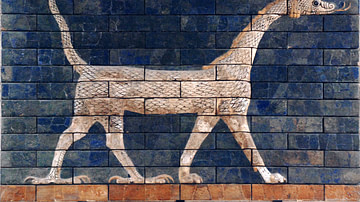
Definition
Marduk
Marduk was the patron god of Babylon who presided over justice, compassion, healing, regeneration, magic, and fairness, although he is also sometimes referenced as a storm god and agricultural deity. His temple, the famous ziggurat described...
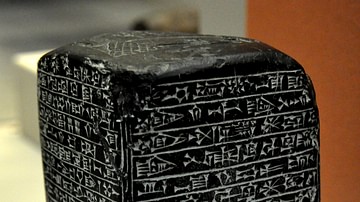
Article
The Marduk Prophecy
The Marduk Prophecy is an Assyrian document dating to between 713-612 BCE found in a building known as The House of the Exorcist adjacent to a temple in the city of Ashur. It relates the travels of the statue of the Babylonian god Marduk...
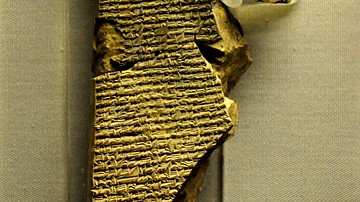
Article
Enuma Elish - The Babylonian Epic of Creation - Full Text
The Enuma Elish (also known as The Seven Tablets of Creation) is the Babylonian creation myth whose title is derived from the opening lines of the piece, "When on High". The myth tells the story of the great god Marduk's victory over the...
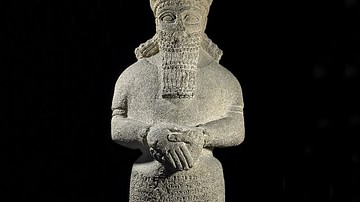
Definition
Nabu
Nabu (sometimes known as Tutu) is the Babylonian god of wisdom, learning, prophecy, scribes, and writing and was also responsible for the abundant harvest and all growing things. His name means "the Announcer" which refers to his prophetic...
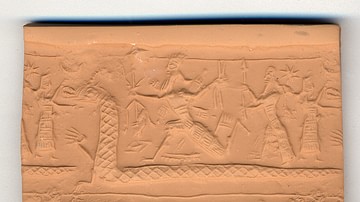
Definition
Tiamat
Tiamat is the Mesopotamian goddess associated with primordial chaos and the salt sea best known from the Babylonian epic Enuma Elish. In all versions of the myth, following the original, Tiamat always symbolizes the forces of chaos, which...
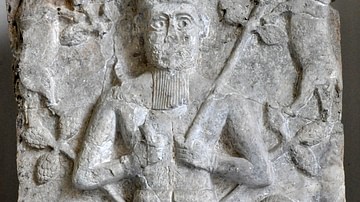
Article
The Mesopotamian Pantheon
The gods of the Mesopotamian region were not uniform in name, power, provenance or status in the hierarchy. Mesopotamian culture varied from region to region and, because of this, Marduk should not be regarded as King of the Gods in the same...
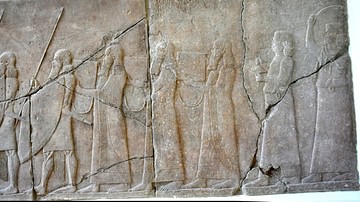
Article
Festivals in Ancient Mesopotamia
Festivals in ancient Mesopotamia honored the patron deity of a city-state or the primary god of the city that controlled a region or empire. The earliest, the Akitu festival, was first observed in Sumer in the Early Dynastic Period (2900-2334...
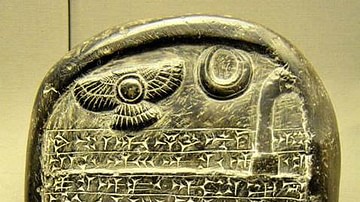
Image
Stela from Babylonian Marduk Temple
This stela came from the Temple of Marduk in Babylon. It is a commemorative monument set up in honour of a private individual called Adad-Etir. He was an official in the temple, known as 'the dagger bearer', and this stela was erected by...
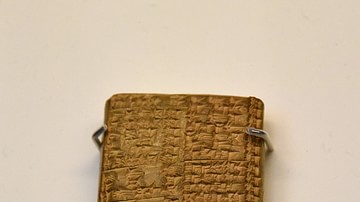
Image
List of Plants in the Garden of Marduk-apla-iddina
This tablet lists the plants in the garden of King Marduk-apla-iddina, the Biblical Merodach-Baladan, including onions, garlic, leeks, lettuce, cucumbers, and turnips, as well as mint, cress, thyme, and coriander. The plant called "slave...
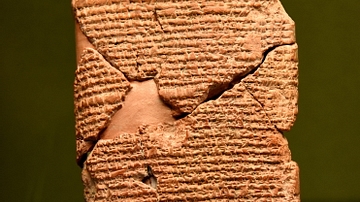
Image
Amel-Marduk's Poem & Prayer
"The wretched, weary person weeps..." The Crown Prince, son of Nebuchadnezzar II, wrote this anguished poem in prison. Once freed, he attributed his rescue to the god Marduk, by changing his name to Amel-Marduk (the Biblical Evil-Merodach...